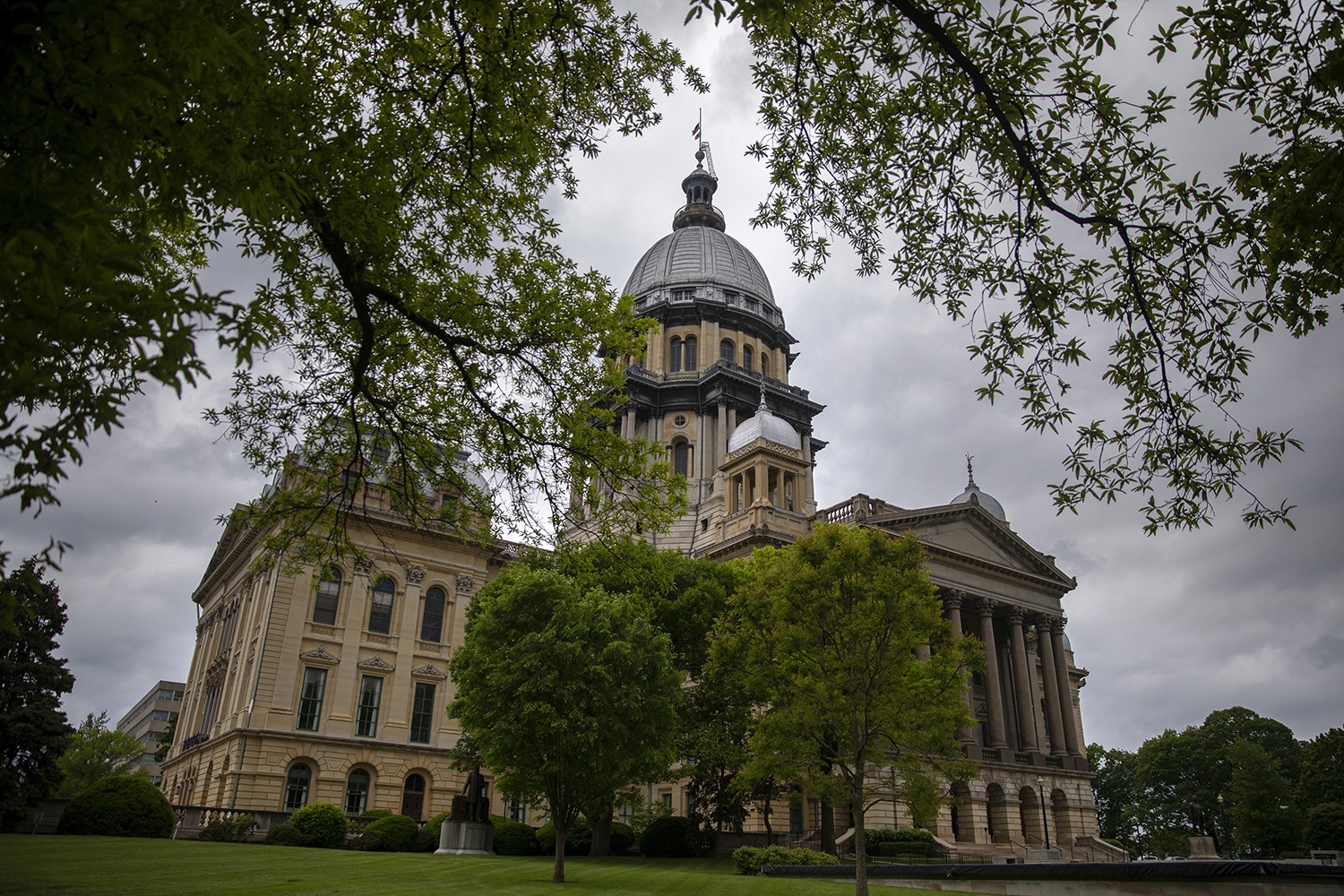Here is a list of some of Chicago’s least-known residents: Eva Dina Delgado. Lakesia Collins. Frances Ann Hurley. Lindsey LaPointe. Lamont J. Robinson Jr. Cristina H. Pacione-Zayas.
You’ve probably never heard of these people because they don’t work in Chicago; they work in Springfield as members of the Illinois General Assembly.
In Chicago politics, there is no lower form of life than a state legislator. If you’re looking to lie low or hide out from your enemies, run for the legislature. No one will bother to hunt you down in the state capital — an exceedingly dull three-hour drive down Interstate 55.
This month, the Washington Post’s conservative columnist, Henry Olsen, wrote a column titled “Dislike gerrymandering? Then the proposed map from Illinois Democrats should be appalling.”
“Consider state House maps in the Chicago area,” Olsen fulminated. “Democratic map wizards take thin slices of heavily Democratic precincts in the city and string them out, one on top of the other, to drown marginally Republican territory in the suburbs. This slicing is so obscene that election guru Sean Trende dubbed it ‘the baconmander.’ That’s not a tasty dish for disenfranchised GOP voters.”
Baconmandering may leave a bad taste in the mouth of Washington’s Henry Olsen, but I guarantee you most Chicagoans don’t know or care what it tastes like. That’s because most of us couldn’t name our legislators before the new map, and we won’t be able to name them after it’s done.
“I don’t know who my state senator is,” a University of Chicago law professor once told me. “Do you know who your state senator is?”
This was an educated, informed man, whose legal essays have appeared in The New York Times. A mere state senator was beneath his notice.
Chicago is one of the few places where a move from statewide office to local office is considered a promotion. Will Burns left the state House to become 4th Ward alderman. (Then he quit the City Council to become a lobbyist for AirBnB.) Former state Rep. John Fritchey joined the Cook County Board. One reason is the pay. A state representative earns $69,464 a year, plus a $151 per diem when the legislature is in session. The Chicago City Council is about to get a raise to $130,000.
After Barack Obama was elected to the state senate in 1996, he immediately realized he was in the bush leagues and began trying desperately to win an office worthy of his resume, as president of the Harvard Law Review. Obama was so desperate that in 2000 he made an ill-advised run for Congress against Bobby Rush, who beat his ass — the only election Obama has ever lost.
“Barack is a very intelligent man,” a veteran statehouse correspondent told me then. “He hasn’t had a lot of success here, and it could be because he places himself above everybody. He likes people to know he went to Harvard.”
(The correspondent went on to say that he couldn’t believe a man of Obama’s intellect and qualifications would be satisfied to spend his career in Springfield. He was right about that.)
Downstate, legislators have an entirely different profile: they’re local superstars. When I lived in Decatur, state Sen. Penny Severns had to sell her house on Main Street and moved to a more secluded location because people kept showing up in her driveway at odd hours asking for help. After Severns died of cancer in 1998 at age 46, the stretch of Interstate 72 between Decatur and Springfield was named in her honor. So was the Illinois Secretary of State’s Family Literacy Program. Compare that to a memorial to one of her colleagues, the late state Sen. Arthur Berman of Chicago. Berman’s image is painted on a park bench in Berger Park, at Sheridan and Granville. Most people probably have no idea whose face they’re sitting on.
“It’s a better job Downstate,” a legislative aide once told me. “The money goes farther, and you’re more likely to get a bill out of something that happened in your district.”
Chicagoans’ indifference to, and isolation from, state politics may be a reason Springfield is so corrupt, with three former governors sentenced to prison in the last 50 years. A 2013 study by the National Bureau of Economic Research found that the further a capital is located from its state’s major population center, the more likely politicians are to misbehave, since they’re less likely to be scrutinized by voters or journalists.
The study, “Isolated Capital Cities, Accountability and Corruption: Evidence from U.S. States,” found that “states with more isolated capitals are indeed found to display higher levels of corruption,” that “newspapers do tend to give state politics greater coverage when their audience is more concentrated around the capital” and that “individuals who are farther from the state capital are substantially less likely to be informed about state politics.”
The solution is obvious. Springfield may have been a good choice for a state capital in 1839 when Chicago had a population of 4,200 people. Today, it’s too far out of sight and out of mind for most Illinoisans. We need to move our capital, if not to Chicago, at least closer. Maybe to Morris, the seat of Grundy County, which contains the population center of Illinois — the point at which the state would balance if every resident were of equal weight.
Sorry, Springfield. You’ll always have Lincoln, but we want to keep a closer eye on our legislators.



